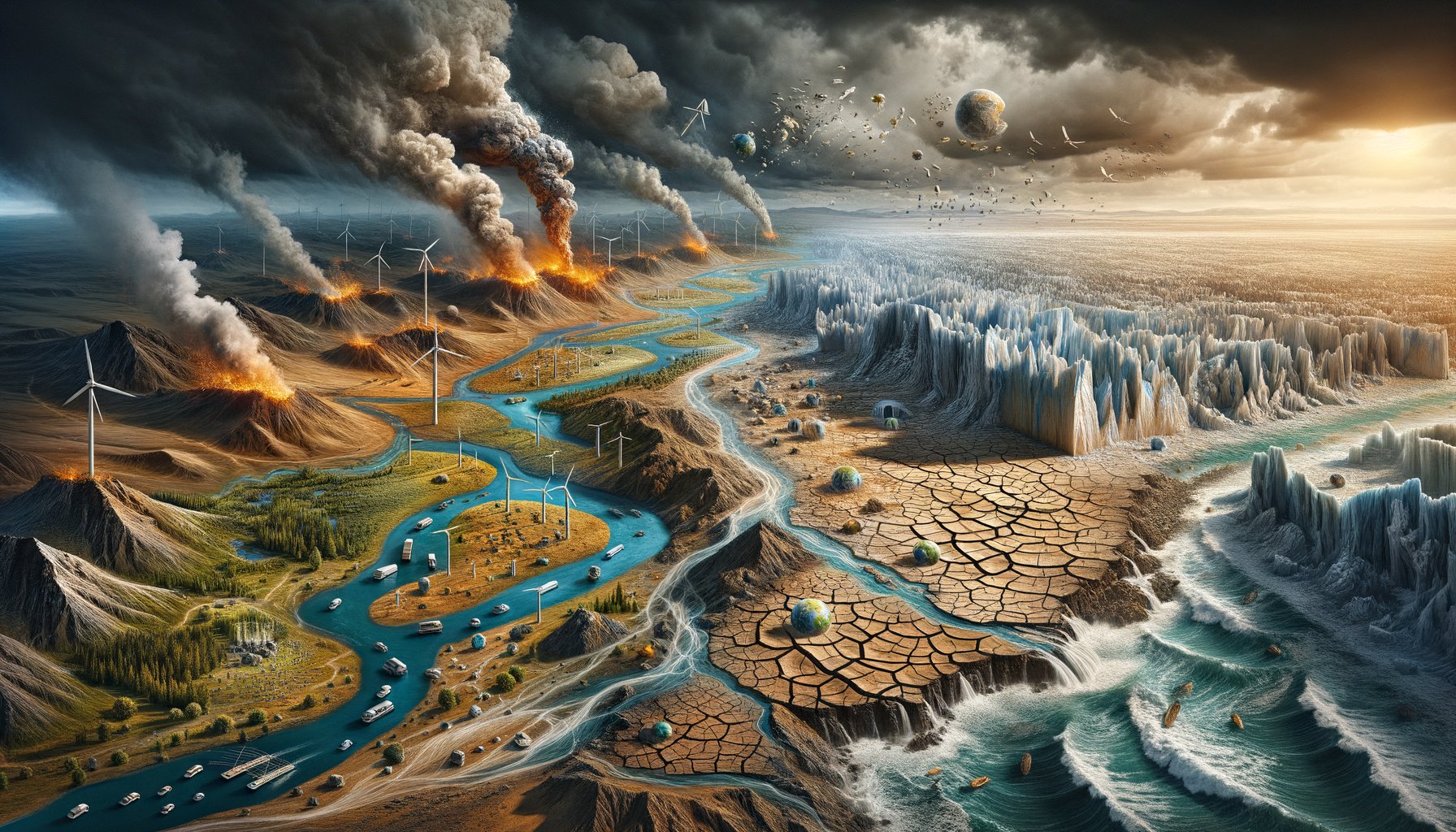Physical Address
304 North Cardinal St.
Dorchester Center, MA 02124
Physical Address
304 North Cardinal St.
Dorchester Center, MA 02124

Climate change, a phenomenon that has been discussed, debated, and dissected for decades now, is no longer a distant threat. It’s here and it’s happening now. The impact of climate change on our generation cannot be overstated. We are the first to witness its drastic effects and the last who can take effective action.
Climate change refers to significant alterations in global weather patterns over an extended period. These changes are primarily driven by human activities like deforestation, burning fossil fuels, industrial processes, and certain agricultural practices.
The Intergovernmental Panel on Climate Change (IPCC) reports that the planet’s average surface temperature has increased by about 0.9 degrees Celsius since the late 19th century. This might seem insignificant, but even a small increase in global temperatures can have dramatic effects on our planet’s climate systems.
One of the most immediate impacts of climate change is its effect on weather patterns. Increasing global temperatures mean more extreme weather events such as heatwaves, hurricanes, droughts and heavy rainfall. These events pose significant threats to human life and property.

For instance, heatwaves can lead to severe health problems such as heatstroke and dehydration, particularly in vulnerable populations like the elderly. Droughts can cause water shortages affecting agriculture and food production while heavy rainfall leads to floods disrupting communities.
Rising sea levels present another major concern related to climate change. As global temperatures rise, polar ice caps melt leading to higher sea levels worldwide.

This can result in coastal flooding, erosion and the displacement of millions of people living in low-lying areas. The potential loss of homes, livelihoods and entire communities is a sobering reality we must face.
Climate change also has serious implications for our planet’s biodiversity. Changes in temperature and precipitation patterns can disrupt ecosystems, forcing wildlife to adapt quickly or face extinction.

Species that are unable to cope with these rapid changes may become extinct, resulting in a loss of biodiversity. This not only affects the beauty and richness of our natural world but also threatens the ecological balance necessary for life as we know it.
The economic consequences of climate change are equally daunting. Damage from extreme weather events, rising sea levels, and changes in agricultural productivity could cost the global economy trillions of dollars. These costs will be borne by all of us through higher taxes, increased insurance premiums, food prices and more.
While the situation may seem dire, it is crucial to remember that we are not powerless. Each one of us has a role to play in mitigating climate change. By adopting sustainable practices like reducing energy consumption, recycling waste, using renewable energy sources and supporting companies committed to sustainability, we can help slow down climate change.

Policymakers too have a pivotal role to play by implementing policies that reduce greenhouse gas emissions and promote sustainable development. As voters and citizens, we should hold them accountable for their actions – or inactions – on climate change.
Climate change is not just an environmental issue. It’s a human issue. It affects every aspect of our lives – from the air we breathe, the food we eat, to the places we call home. Our generation has inherited this problem, and it falls upon us to take action now for the sake of future generations. The time for debate is over; it’s time to act.